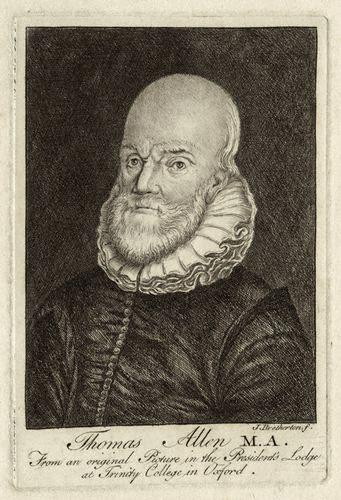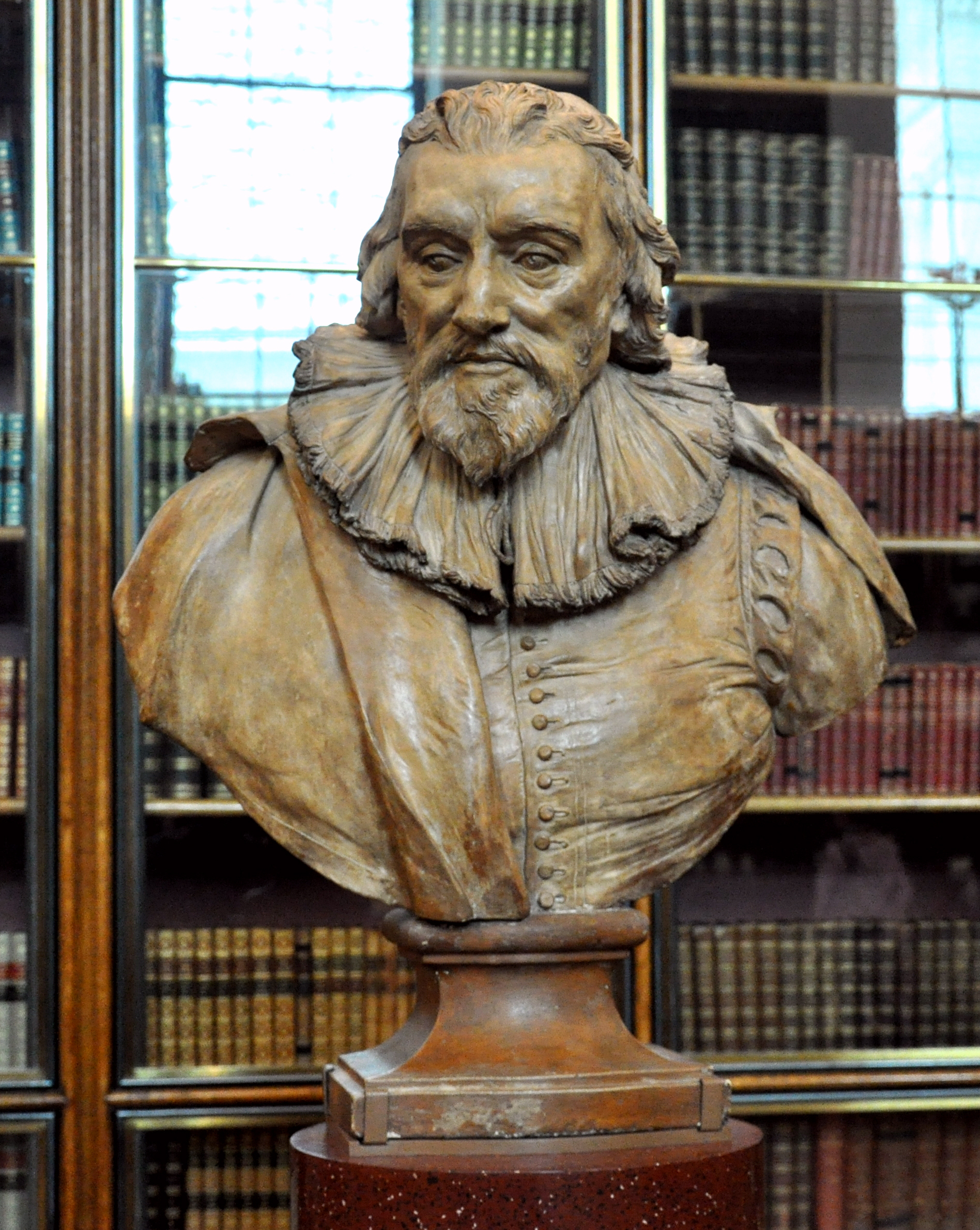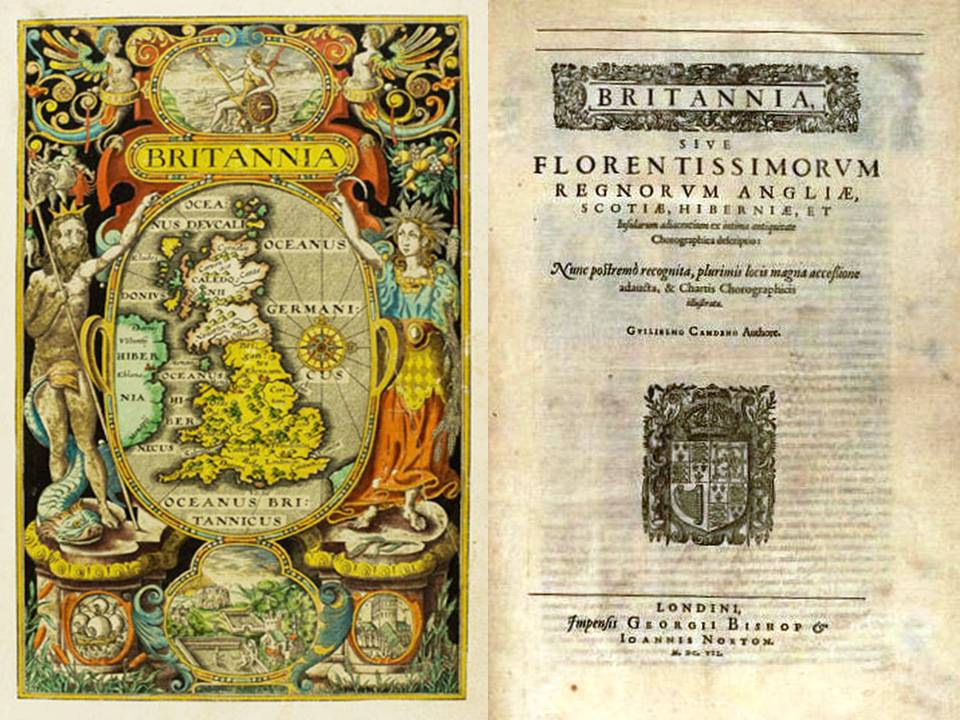|
Thomas Allen (mathematician)
Thomas Allen (or Alleyn) (21 December 154230 September 1632) was an English mathematician and astrologer. Highly reputed in his lifetime, he published little, but was an active private teacher of mathematics. He was also well connected in the English intellectual networks of the period. Early life He was born in Uttoxeter, Staffordshire. He was admitted scholar of Trinity College, Oxford, in 1561; and graduated as M.A. in 1567. In 1571 he left his college and fellowship, and moved to Gloucester Hall. He became known for his knowledge of antiquity, philosophy, and mathematics. At Gloucester Hall Gloucester Hall suited Allen, a sympathiser at least with Catholicism, because there was no stringent religious observance required there; indeed there was no chapel in the Hall. Allen's beliefs have been classified as "church papist", but also his posture as "crypto-Catholic": a Catholic faith combined with outward conformity to the Church of England. He joined there his friends Edmund ... [...More Info...] [...Related Items...] OR: [Wikipedia] [Google] [Baidu] |
Thomas Allen
Thomas Allen may refer to: Clergy *Thomas Allen (nonconformist) (1608–1673), Anglican/nonconformist priest in England and New England *Thomas Allen (dean of Chester) (died 1732) *Thomas Allen (scholar) (1681–1755), Anglican priest in England *Thomas Allen (Manx author) (1710–1754), vicar of Maughold Parish and author of Manx carols *Thomas M. Allen (Missouri clergyman) (1797–1871), minister of the Disciples of Christ church *Thomas Allen (dean of Achonry) (1873–1927) *Thomas Allen (chaplain), American Revolution chaplain Music *Thomas S. Allen (1876–1919), American composer *Sir Thomas Allen (baritone) (born 1944), British baritone singer *Tom Allen (broadcaster) (born 1964), trombonist and radio broadcaster for the Canadian Broadcasting Corporation Politicians *Thomas Allen (Cavalier) (1603–1681), English MP for Middlesex *Sir Thomas Allen, 1st Baronet (c. 1633–1690), Lord Mayor of London *Tom Allen (Maine politician) (born 1945), U.S. representative for Maine *Th ... [...More Info...] [...Related Items...] OR: [Wikipedia] [Google] [Baidu] |
Henry Briggs (mathematician)
Henry Briggs (1 February 1561 – 26 January 1630) was an English mathematician notable for changing the original logarithms invented by John Napier into common (base 10) logarithms, which are sometimes known as Briggsian logarithms in his honour. The specific algorithm for long division in modern use was introduced by Briggs 1600 AD. Briggs was a committed Puritan and an influential professor in his time. Personal life Briggs was born at Daisy Bank, Sowerby Bridge, near Halifax, in Yorkshire, England. After studying Latin and Greek at a local grammar school, he entered St John's College, Cambridge, in 1577, and graduated in 1581. In 1588, he was elected a Fellow of St John's. In 1592, he was made reader of the physical lecture founded by Thomas Linacre; he also read some of the mathematical lectures. During this period, he took an interest in navigation and astronomy, collaborating with Edward Wright. In 1596, he became first professor of geometry in the recently fou ... [...More Info...] [...Related Items...] OR: [Wikipedia] [Google] [Baidu] |
Æthelweard (historian)
Æthelweard (also Ethelward; d. ), was an ealdorman and the author of a Latin version of the ''Anglo-Saxon Chronicle'' known as the '' Chronicon Æthelweardi''. He was a kinsman of the royal family, being a descendant of the Anglo-Saxon King Æthelred I of Wessex, the elder brother of Alfred the Great. Career Æthelweard first witnessed charters as a thegn after the accession of Eadwig in 955, probably because he was the brother of the king's wife, Ælfgifu, although the relationship is unproven. The marriage was annulled on the grounds of consanguinity, and Æthelweard's position was threatened when Eadwig died in 959 and was succeeded by his half-brother Edgar, who was hostile to the faction associated with Eadwig. Æthelweard survived, although he was not appointed to the position of ealdorman until after Edgar's death. In the view of Shashi Jayakumar, "One receives the impression that Æthelweard played his cards right in Edgar's reign, perhaps by treading warily and displayi ... [...More Info...] [...Related Items...] OR: [Wikipedia] [Google] [Baidu] |
Robert Bruce Cotton
Sir Robert Bruce Cotton, 1st Baronet (22 January 1570/71 – 6 May 1631) of Conington Hall in the parish of Conington in Huntingdonshire, England,Kyle, Chris & Sgroi was a Member of Parliament and an antiquarian who founded the Cotton library. Origins He was born on 22 January 1571 in Denton, Huntingdonshire, the son and heir of Thomas Cotton (1544–1592) of Conington (son of Thomas Cotton of Conington Sheriff of Huntingdonshire in 1547) by his first wife Elizabeth Shirley, a daughter of Francis Shirley of Staunton Harold in Leicestershire. The Cotton family originated at the manor of Cotton, Cheshire, from which they took their surname. Education Cotton was educated at Westminster School where he was a pupil of the antiquarian William Camden, under whose influence he began to study antiquarian topics. He began collecting rare manuscripts as well as collecting notes on the history of Huntingdonshire when he was seventeen. He proceeded to Jesus College, Cambridge, where he ... [...More Info...] [...Related Items...] OR: [Wikipedia] [Google] [Baidu] |
John Dee (mathematician)
John Dee (13 July 1527 – 1608 or 1609) was an English mathematician, astronomer, astrologer, teacher, occultist, and alchemist. He was the court astronomer for, and advisor to, Elizabeth I, and spent much of his time on alchemy, divination, and Hermetic philosophy. As an antiquarian, he had one of the largest libraries in England at the time. As a political advisor, he advocated the foundation of English colonies in the New World to form a "British Empire", a term he is credited with coining. Dee eventually left Elizabeth's service and went on a quest for additional knowledge in the deeper realms of the occult and supernatural. He aligned himself with several individuals who may have been charlatans, travelled through Europe and was accused of spying for the English crown. Upon his return to England, he found his home and library vandalised. He eventually returned to the Queen's service, but was turned away when she was succeeded by James I. He died in poverty in London and ... [...More Info...] [...Related Items...] OR: [Wikipedia] [Google] [Baidu] |
Syon House
Syon House is the west London residence of the Duke of Northumberland. A Grade I listed building, it lies within the 200-acre (80 hectare) Syon Park, in the London Borough of Hounslow. The family's traditional central London residence had been Northumberland House, now demolished. The eclectic interior of Syon House was designed by the architect Robert Adam in the 1760s. History Syon House derives its name from Syon Abbey, a medieval monastery of the Bridgettine Order, founded in 1415 on a nearby site by King Henry V. The abbey moved to the site now occupied by Syon House in 1431. It was one of the wealthiest nunneries in the country and a local legend recites that the monks of Sheen had a ley tunnel running to the nunnery at Syon.Westwood, Jennifer (1985), ''Albion. A Guide to Legendary Britain.'' Pub. Grafton Books, London. . p. 126. In 1539, the abbey was closed by royal agents during the Dissolution of the Monasteries and the monastic community was expelled. On the ... [...More Info...] [...Related Items...] OR: [Wikipedia] [Google] [Baidu] |
Henry Percy, 9th Earl Of Northumberland
Henry Percy, 9th Earl of Northumberland, KG (27 April 1564 – 5 November 1632) was an English nobleman. He was a grandee and one of the wealthiest peers of the court of Elizabeth I. Under James I, Northumberland was a long-term prisoner in the Tower of London, due to the suspicion that he was complicit in the Gunpowder Plot. He is known for the circles he moved in as well as for his own achievements. He acquired the sobriquet The Wizard Earl (also given to Gerald FitzGerald, 11th Earl of Kildare), from his scientific and alchemical experiments, his passion for cartography, and his large library. Early life He was born at Tynemouth Castle in Northumberland, England, the son of Henry Percy, 8th Earl of Northumberland, whom he succeeded in 1585. His father died, an apparent suicide, in the Tower of London, where he was being questioned about his allegedly treasonable dealings with Mary Queen of Scots. His mother was Katherine Neville, daughter and co-heiress of John Neville, ... [...More Info...] [...Related Items...] OR: [Wikipedia] [Google] [Baidu] |
William Camden
William Camden (2 May 1551 – 9 November 1623) was an English antiquarian, historian, topographer, and herald, best known as author of ''Britannia'', the first chorographical survey of the islands of Great Britain and Ireland, and the ''Annales'', the first detailed historical account of the reign of Elizabeth I of England. Early years Camden was born in London. His father Sampson Camden was a member of The Worshipful Company of Painter-Stainers. He attended Christ's Hospital and St Paul's School, and in 1566 entered Oxford (Magdalen College, Broadgates Hall, and finally Christ Church). At Christ Church, he became acquainted with Philip Sidney, who encouraged Camden's antiquarian interests. He returned to London in 1571 without a degree. In 1575, he became Usher of Westminster School, a position that gave him the freedom to travel and pursue his antiquarian researches during school vacations. ''Britannia'' In 1577, with the encouragement of Abraham Ortelius, Camden bega ... [...More Info...] [...Related Items...] OR: [Wikipedia] [Google] [Baidu] |
Degory Wheare
Degory Wheare, also spelt Digory Whear (the first name can be Latinized as Degoreus or Digoreus) (1573 – 1 August 1647) was an historian, the first Camden Professor of Ancient History in the University of Oxford. Life He was born in Jacobstow, Cornwall, at the mansion of Berry Court. He matriculated at Broadgates Hall, Oxford, on 6 July 1593, graduated B.A. on 5 February 1597, and proceeded M.A. on 16 June 1600. He was a contemporary of Francis Rous, a lifelong friend; and he was tutor at Broadgates Hall to John Pym (matriculated 18 May 1599). Another Oxford friend was Charles Fitzgeoffrey. Wheare was admitted on 7 July 1602 as Cornish fellow of Exeter College, Oxford, and became full fellow on 7 July 1603. He was headmaster of Abingdon School from 1605–1606. He resigned his fellowship on 30 April 1608. In that year he went abroad as travelling companion to Grey Brydges, 5th Baron Chandos; and on his return to England Wheare continued to live with him. He was then perm ... [...More Info...] [...Related Items...] OR: [Wikipedia] [Google] [Baidu] |
Camden Chair Of Ancient History
The Camden Professorship of Ancient History at the University of Oxford was established in 1622 by English antiquary and historian William Camden, Clarenceux King of Arms, and endowed with the income of the manor of Bexley, becoming the first and oldest chair of history in England. Since 1877 it has been attached to Brasenose College, and since 1910 it has been limited to Roman history. List of Camden Professors of Ancient History List of holders of the chair since its foundation: # Degory Wheare 1622–1647 # Robert Waryng 1647–1648 # Lewis du Moulin 1648–1660 # John Lamphire 1660–1688 # Henry Dodwell 1688–1691 # Charles Aldworth 1691–1720 # Sedgwick Harrison 1720–1727 # Richard Frewin 1727–1761 # John Warneford 1761–1773 # William Scott (later Lord Stowell) 1773–1785 # Thomas Warton 1785–1790 # Thomas Winstanley 1790–1823 # Peter Elmsley 1823–1825 # Edward Cardwell 1825–1861 # George Rawlinson 1861–1889 # Henry Francis Pelham 1889–1907 # Francis ... [...More Info...] [...Related Items...] OR: [Wikipedia] [Google] [Baidu] |
William Fulbecke
William Fullbecke (1560–1603?) was an English playwright, historian, lawyer and legal scholar, who did pioneering work in international law. He described himself as "maister of Artes, and student of the lawes of England." Life He was a younger son of Thomas Fulbeck, who was mayor of Lincoln, and was born there. He studied at St Alban Hall, Christ Church and Gloucester Hall, Oxford, proceeding B.A. 1581, and M.A. 1584. In 1584 he moved to London and entered Gray's Inn, where he became a bencher. Writings Fulbecke's "Direction..." (1600), discussed study methods for law students, techniques for arguing a case, and suggestions for further reading. It is also full of advice, such as admonishing law students not to study at night, because: : "''for when the stomach is full and stuffed with meat, the abundance of humours is carried to the head, where it sticketh for a time and layeth as it were a lump of lead upon the brain.''" This book has been very popular and has been repri ... [...More Info...] [...Related Items...] OR: [Wikipedia] [Google] [Baidu] |
Robert Hegge
Robert Hegge (1599–1629) was an English academic and antiquary. Life Born at Durham in 1599, he was the son of Stephen Hegge, notary public there, by Anne, daughter of Robert Swyft, LL.D., prebendary of Durham. On 7 November 1614, he was admitted scholar of Corpus Christi College, and graduated B.A. on 13 February 1617 and M.A. on 17 March 1620. He was elected probationer fellow of his college on 27 December 1624, but died suddenly on 11 June 1629, and was buried in Corpus Christi Chapel. Works Hegge wrote a ‘Treatise of Dials and Dialling,’ preserved in the college library, to which he also presented a manuscript of Augustine of Hippo's ''De Civitate Dei''. Another treatise from his pen, entitled ''In aliquot Sacræ Paginæ loca lectiones'', was published at London in 1647 by John Hall. A third treatise by Hegge, entitled ''Saint Cvthbert; or the Histories of his Chvrches at Lindisfarne, Cvncacestre, and Dvnholme'', was written in 1625 and 1626. Richard Baddeley, priv ... [...More Info...] [...Related Items...] OR: [Wikipedia] [Google] [Baidu] |

_(1906).jpg)




